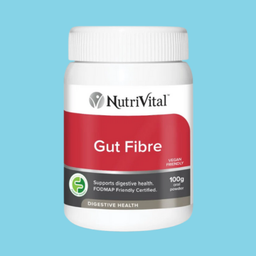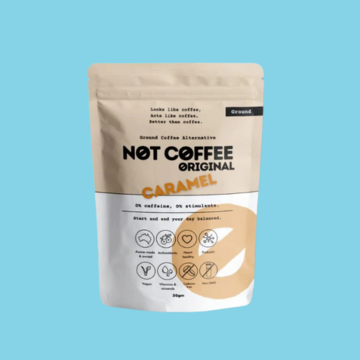Written By  Go Vita
Go Vita
blog

The ketogenic diet – ‘keto’ to its many fans – is one of the hottest diet trends around. But, does it work?
Should You Try Keto?
The ketogenic diet – ‘keto’ to its many fans – is one of the hottest diet trends around. But, does it work?
Let’s look at the pros and cons.
By limiting carbohydrate intake, the ketogenic diet produces ketosis, a state in which the body has used up its stored carbohydrate and begins to increasingly rely on fats for energy. Proponents of the diet say it provides sustainable weight loss and benefits to physical and mental health – some research shows that it may support people with diabetes and epilepsy.
How does it work?
The keto diet is made up of 75 per cent fat, 20 per cent protein and five per cent carbohydrates. This ratio forces your body to go into a state of ketosis, where the body changes from using carbohydrates for fuel to using fats, which causes fat loss. It also explains why the keto diet is sometimes nicknamed “the bacon and butter” diet, with followers eating large amounts of healthy fats, such as grass-fed butter and beef, and coconut oil.
The initial induction phase of the keto diet aims to get your body into a state of ketosis, and this may be achieved by fasting, cutting carbohydrates and taking ketogenic supplements, such as lauric acid, a medium-chain triglyceride (MCT) which supports ketosis. The duration of this induction phase varies from one person to another and it will depend on your diet, lifestyle and metabolism – some people may achieve ketosis in just a few days, others may find it takes them several weeks. The induction phase is followed by an ongoing weight loss phase, during which you continue to limit your intake of carbohydrates and use other methods to help boost and maintain weight loss, such as intermittent fasting.
Is it healthy?
Reducing your kilojoule (calorie) intake by cutting carbohydrates is, generally speaking, a good slimming principle, especially if it is from sugar and processed food. Another bonus is that followers of the diet claim that you don’t feel hungry or get cravings for carbohydrates, thanks to the high fat content which makes you feel full and provides energy. Reducing carbohydrate intake may also help to lower blood triglycerides and lower blood pressure. Plus, cutting carbs may lead to better insulin control by reducing blood sugar spikes, and so have a beneficial preventive effect on metabolic disorders associated with too-high insulin. The jury is out on the diet’s effect on mood and energy levels: some followers claim to feel more alert and less lethargic, but others report fatigue. There are also mixed reports about keto’s benefits or otherwise on cholesterol – some say that eating low-carb helps boost HDL (‘good’) cholesterol, while others say the opposite is the case, due to the meat-intensive nature of the diet.
Like any other diet, while ketosis may reduce appetite, eliminating an entire food group is a major dietary change which some people may find difficult to adapt to. For example, many common combination foods are eliminated, such as pizza (because of the crust) and sandwiches (because of the bread). Keto also limits most fruits due to the fructose content, as well as starchy vegetables like potatoes and corn and most alcohol, with the exception of dry wine and unflavoured clear liquor, such as gin and vodka. Apart from making it difficult to choose food to eat when dining out, you may simply have the type of personality that does not do well with restrictions and limitations. Some people find the metabolic changes that result from the keto diet uncomfortable. Carbohydrate cravings, for example, may or may not disappear with time. Headaches can occur and so can nausea and bad breath, because the liver and gallbladder may take a while to adapt to the new dietary regime. The lack of fibre may lead to constipation, while the reduced intake of fruit and vegetables may lead to deficiencies in certain nutrients. Go Vita recommends you consult your healthcare provider before making any significant changes to your diet, especially if you take any prescription medication.
Jargon buster
Ketones – These chemicals, also referred to as ketone bodies, are produced by your body from fat when it has insufficient kilojoules (calories) from carbohydrates. During carbohydrate restriction, ketones can replace glucose as the main fuel source for the brain.
Ketosis – This is a state in which the body has used up its store of carbohydrates and is producing ketones from the breakdown of fat.
Ketogenic diet – A diet that causes your body to produce ketones by limiting carbohydrates.
Information presented is for information purposes only and is not intended to replace advice or treatment from qualified healthcare professionals. The information is not intended to treat or diagnose. Always consult your healthcare professional before taking nutritional or herbal supplements. If you are pregnant, breastfeeding, have any allergies or diagnosed conditions, or are taking prescription medications, always consult your healthcare professional before taking nutritional or herbal supplements.
Binge Read on these

Matcha Ice Cream
Cool down the natural way with this Matcha Ice Cream by Matcha Maiden.
101-Matcha-Benefits

Dubai Coconut Collagen Chocolate Bark
Indulge in this Dubai Coconut Collagen Chocolate Bark made with Nutraviva Collagen Hydrolysate.

Empowering Women: Navigating Perimenopause and Menopause

Matcha Ice Cream
Cool down the natural way with this Matcha Ice Cream by Matcha Maiden.
101-Matcha-Benefits

Dubai Coconut Collagen Chocolate Bark
Indulge in this Dubai Coconut Collagen Chocolate Bark made with Nutraviva Collagen Hydrolysate.

Empowering Women: Navigating Perimenopause and Menopause

